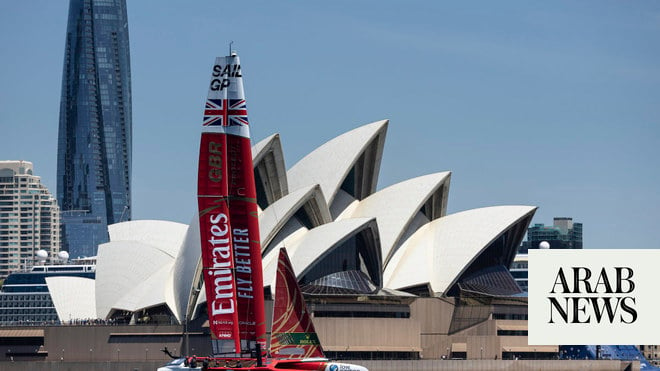
Campaigners including the musician Brian Eno, the author Ahdaf Soueif and the actor Miriam Margolyes have criticised BP’s sponsorship of an exhibition of Egyptian artefacts at the British Museum.
The exhibition opens shortly before the critical Cop27 climate summit in the Egyptian resort of Sharm el Sheikh this November.
The campaigners argue that “BP has partnered closely with successive governments and regimes in Egypt,” and that laws restricting freedom of expression and protest rights have quashed any potential pushback against BP’s fossil fuel extraction projects in the country.
In an open letter from Culture Unstained, a campaign group which focuses on ties between fossil fuel companies and the arts sector, to the British Museum signed by Eno, Soueif and Margolyes among others, the group said the institution “should not celebrate Egypt’s cultural past while ignoring the human rights situation in the present, or the climate impacts Egypt faces in the future”.
Culture Unstained protested against the opening of the exhibition by reading extracts from You Have Not Yet Been Defeated, a book of essays by jailed British-Egyptian blogger and activist Alaa Abd El-Fattah, who will reach 200 days on hunger strike in protest at his detention conditions in the weeks prior to Cop27. Abd El-Fattah, a figurehead of Egypt’s 2011 uprising, recently warned his family that he expects he will die behind bars.
The British Museum, which houses many treasures from ancient Egypt due to be displayed as part of an exhibition on hieroglyphs including the Rosetta Stone, has drawn extensive criticism for its ties to BP since the British multinational fossil fuel company began sponsoring the museum in 2016, including from its own staff.
BP has strong commercial ties with Egypt, partially due to the country’s large natural gas reserves. An Egyptian government report of a visit earlier this year between BP’s chief executive, Bernard Looney, and the Egyptian president, Abdel Fatah al-Sisi, described how Looney had lauded the president’s “wise leadership and ambitious vision”.
Since coming to power in a military coup in 2013, Sisi has overseen a profound crackdown on free expression and human rights. Under his rule, public dissent is all but prohibited, although Egypt has tentatively stated it will allow protests during Cop27 in an area adjacent to the conference centre.
In the period after the coup that brought Sisi to power, BP announced an exploration project worth $240m (£215m), and it has since established deep involvement in at least two key Egyptian natural gas fields in the Mediterranean.
This includes natural gas projects in the town of Idku near the Egyptian coast, which drew protests prior to Sisi coming to power that were quashed after the coup. “BP sponsoring this exhibition is playing into an image that the Egyptian regime would like us to buy into, and helps BP to present its expanding gas operations in Egypt in a positive light,” said Chris Garrard of Culture Unstained. “But we know that communities there resisted and opposed this on the ground, and we want to shine a light on what they did.”
Garrard said his organisation was seeking to provide a platform for protests that couldn’t take place in Egypt, particularly around the fate of Abd El-Fattah, despite the exhibition aiming to focus on Egypt’s distant past. “I think the responsibility of those of us in the UK is to think critically, we learn about ancient Egypt and the pyramids in school but we need to look beyond this,” he said.
The British Museum told the Guardian: “BP are a longstanding corporate partner, and their current contract with us runs until 2023. Museums today have a mixed funding model and we need corporate and private money to fulfil our public mission, to deliver unique learning experiences. The past couple of years have shown how precarious the financial situation can be. Support from the corporate sector is essential for museums and arts organisations in times of reduced funding. This support means we can successfully plan exhibitions long-term and deliver public benefit for millions of people.”
David Nicholas, a spokesperson for BP said: “BP has supported the British Museum for over 25 years – this has included supporting around 20 special exhibitions as well as displays and touring exhibitions, covering a wide variety of subjects. And we have been operating in Egypt for almost 60 years supporting Egypt’s growing demand for energy, and are one of the largest investors into its energy industry.”The author Omar Robert Hamilton, one of the signatories of Culture Unstained’s letter to the British Museum and a cousin of Abd El-Fattah, said: “The Egyptian regime relies a great deal on the country’s ancient past to obscure their present horrors. BP, on the other hand, works hard to rewrite its past to obscure future horrors. The British Museum seems happy to help on both fronts, and has long been a useful accomplice in laundering both their reputations.”
Egypt is due to host the UN’s conference of the parties, or Cop27, in early November. “As hosts of the summit, the Egyptian government is seeking to present itself as a progressive leader on climate change. In reality, the ongoing violent crackdown and restrictions on freedom of assembly and expression severely undermine the meaningful participation of civil society at the summit,” said Culture Unstained.












